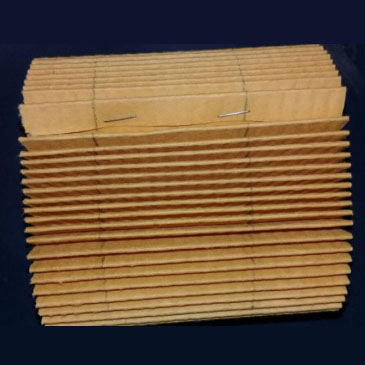Jul . 28, 2024 01:05 Back to list
Top Industrial Air Filter Manufacturers and Their Innovative Solutions for Cleaner Air Quality
The Importance of Industrial Air Filters A Focus on Manufacturers
In today's industrial landscape, maintaining air quality is crucial for both environmental and occupational health. Industrial air filters play a vital role in ensuring clean air by removing dust, pollutants, and hazardous particles from the environment. Manufacturers of industrial air filters are at the forefront of this essential task, contributing to cleaner air, improved workplace safety, and compliance with regulatory standards.
The Role of Industrial Air Filters
Industrial air filters are engineered to capture airborne contaminants that can pose risks to human health and the environment. These filters are utilized in various sectors, including manufacturing, pharmaceuticals, food processing, and chemical production, where particulates and volatile organic compounds (VOCs) are prevalent. The primary function of these filters is to ensure that the air being circulated in workspaces and production areas is free from harmful substances.
The efficiency of industrial air filters is measured by their Minimum Efficiency Reporting Value (MERV), which reflects their ability to trap different sizes of particles. Filters with higher MERV ratings are more effective at capturing smaller particulate matter, which is critical in industries where air purity is paramount.
Types of Industrial Air Filters
There are several types of industrial air filters, each designed for specific applications
. Some of the most common types include1. HEPA Filters High-Efficiency Particulate Air (HEPA) filters are renowned for their ability to capture 99.97% of particles that are 0.3 microns in diameter or larger. These filters are often used in environments that require a high level of air quality, such as clean rooms and hospitals.
industrial air filters manufacturers

2. Activated Carbon Filters These filters are designed to remove gaseous pollutants and odors from the air. They work by adsorbing volatile organic compounds (VOCs) and other harmful gases, making them suitable for use in chemical and food processing industries.
3. Bag Filters Typically used for larger particles, bag filters are made from a variety of fabrics and are effective in capturing dust and dander in industrial settings. They are cost-effective and have a large surface area, which allows for greater air flow and reduced resistance.
4. Electrostatic Filters These filters use an electric charge to attract and trap particles, making them highly efficient at filtering out fine dust and smoke.
The Role of Manufacturers
Manufacturers of industrial air filters are crucial in developing and producing filters that meet specific industry standards and application needs. They invest in research and development to enhance filtration technologies, improving the performance and lifespan of their products. Moreover, they ensure compliance with environmental regulations and industry certifications that guarantee the safety and effectiveness of their filters.
The selection of the right manufacturer is essential for businesses seeking to improve their air quality. Considerations such as product quality, service support, and specialization in certain industries can significantly impact the effectiveness of air filtration systems. Leading manufacturers often provide customized solutions tailored to meet the specific needs of their clients, ensuring optimal performance and efficiency.
Conclusion
In conclusion, industrial air filters are integral to maintaining air quality across various sectors. The manufacturers of these filters play a vital role in advancing filtration technology and ensuring compliance with health and safety standards. As industries continue to evolve and expand, the demand for efficient air filtration systems will only grow, highlighting the importance of selecting reliable and innovative manufacturers in this field. By investing in high-quality air filters, industries can protect their workforce, boost productivity, and contribute positively to environmental sustainability.
-
OEM PLXB-1 PU Pack Trimming Machine - High Precision, Durable, Cost-Effective Solutions
NewsJun.10,2025
-
High-Performance In Line Fan Filter Trusted In Line Fan Filter Company & Products
NewsJun.10,2025
-
High-Efficiency Water Filter Making Machine Reliable Companies & Products
NewsJun.10,2025
-
Premium Metal Fuel Filter Durable & Efficient for Engine Protection
NewsJun.10,2025
-
Premium OEM 304 Rimmed Filter Disc Custom Stainless Steel Filters
NewsJun.10,2025
-
China PP Air Filter Production Line Automated & High-Efficiency Solutions
NewsJun.10,2025
